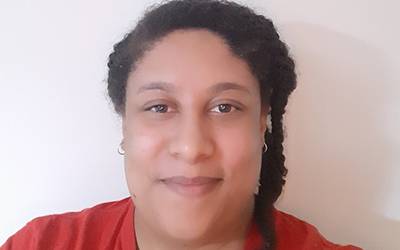Caitlin Allotey-Reidpath - Medical Anthropology MSc
8 March 2021

I commenced my MSc in Medical Anthropology in 2019, graduating in 2020. I had originally done a BSc in Medical Sciences and through an optional social and cultural anthropology class found that I was fascinated by the impact of the sociocultural makeup of a population on health. This eventually led me to seek further study in the social sciences, whilst still appeasing my passion for biology and medicine. The UCL MSc Medical Anthropology course was perfect for me as it catered well to those more heavily embedded within the biological sciences sphere who hadn’t necessarily formally been taught anthropology.
The core medical anthropology module introduced me to great minds like Michel Foucault, Mary Douglas, and Merrill Singer who made me think about the relationship between biomedicine and power structures, risk and risk perception, health disparities, and syndemics. Two of the courses I took during my year of study were anthropology of death and aspects of applied medical anthropology. The former was a fascinating dive into the subject of death and death practices within different cultures; how bodies are cared for and buried, what happens to the spirit and the body after death, does the body retains its identity after death. I greatly enjoyed the early morning discussions we had and the great care we all took in supporting each other when discussing morbid and sometimes very emotional topics.
Applied medical anthropology was a course that I felt was so necessary for me. After learning a lot of theory and approaches to anthropology and health it was amazing to learn about how people translate that into practice and advocacy and interventions. We had to think critically about the impact of anthropology research when it is used to enact change and how that is done in practice. It was also an extremely topical subject to take when we began to discuss epidemics during the early months of the COVID-19 pandemic. Incidentally, I also ended up doing my dissertation on the pandemic and risk perception.
Although it was not how I had imagined myself doing my dissertation when I first applied for the course, it was an interesting experience and I thoroughly enjoyed being able to conduct my own mini ethnography and analyse the experience of others during the pandemic whilst examining my own. The community of students and staff in the anthropology department were some of the most supportive and keen-minded people I had ever met and the formal and informal discussions and debates I had with them were invaluable moments and memories. I am now studying medicine and greatly missing those discussions, but also looking forward to applying and imparting the knowledge I gained by studying medical anthropology.
 Close
Close

